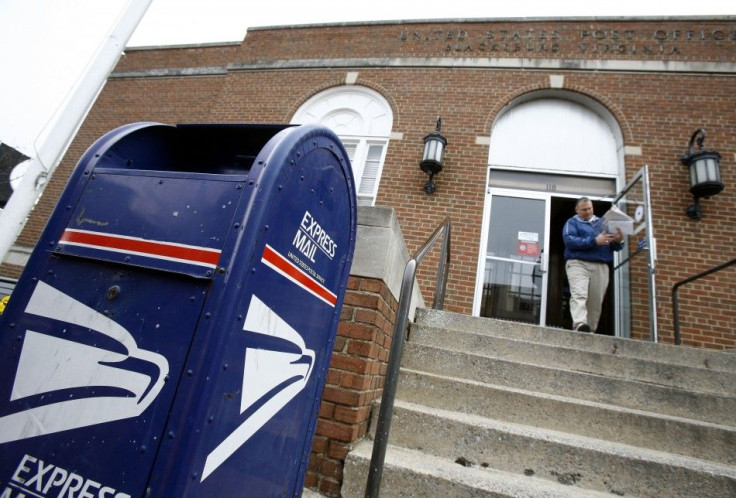USPS Deficit: Five Problems Plaguing America's Postal Service

A cash crisis is driving the United States Postal Service toward insolvency. Postmaster James A. Farley is asking Congress for help, threatening that the postal service will default in September if something isn't done.
Here are five problems plaguing the USPS:
1. Faster-than-expected sales declines due to evaporation of First Class mail. Many argued years ago that the computer as we first knew it would kill our need for paper. But they were wrong. If anything, the first computer increased our reliance upon paper.
But then came the smartphone and tablets, social media and the sophistication of online bill pay. Fewer people need first-class mail. They send e-mail letters, connect with Facebook, and pay bills online. And the trend is growing fast, leaving the USPS with a bloated structure trying to downsize but the agency can't do it fast enough.
Simply, technology is killing the one thing that generations of Americans have come to know and trust -- the United States Postal Service.
2. A federal law forcing the USPS to pre-fund its retiree health benefits. This is perhaps the most pressing issue facing the postal service. Expected to post a deficit this year in excess of $8 billion, the postal service, which doesn't receive a dime of federal taxpayer subsidy, must pay the government roughly $5.5 billion annually.
The payment began in 2006 due to a law passed at that time -- when the postal service was profitable -- which requires the postal service to prepay benefits costs to the federal government since many of its employees are within the government's retirement system.
The USPS doesn't have that money this year, and a payment is due at the end of September. The postal service wants help from Congress to change the law, allowing the USPS to take over its pension and healthcare benefits directly for its 480,000 retirees and 600,000 active workers.
But Congress is under pressure from postal service worker unions to avoid such a move, making it a political hot potato. One union spokesman representing the American Postal Workers has said crushing postal workers and slashing service will not solve [the USPS'] financial crisis.
Still, something must be done. Either Congress must take over the payment or allow the postal service to manage benefits, or else the USPS will default.
3. Too many costly retail units. The postal service is in the midst of a retraction plan, shedding retail units across the country and eliminating jobs. But it isn't happening fast enough. The postal service has found that contract retail units, with core operational costs managed by an independent proprietor, work well.
But such contract postal outlets, while cost efficient, also come under fire. It is politically incorrect to close down community post offices and postal workers don't like the move, since it eliminates jobs. Still, it's the path the post office has taken in recent years, the only problem is that federal bureacracy makes the process far too slow to keep up with slowing business due to fast-moving technology.
4. Price increase limitations. In September 2010, postal regulators denied requests by the USPS to increase postage rates in January 2011. The reason given was this: The postal service's financial woes are caused by a flawed business model and not the recession. Thus, a request by the USPS to raise postage rates on First Class mail, periodicals and other services beyond the rate of inflation was denied.
So while the postage stamp remains one of America's best bargains, it comes at a significant cost to the postal service. With first-class mail volume in decline, a price hike is needed to get business in order while the system is restructured. But in a period of low inflation following the recession, the postal service cannot raise the price of stamps and other services.
5. Bureacratic struggle. The USPS is a standalone agency. Many think the postal service is a direct function of the federal government; it's not. Because the postal service does not receive federal subsidies, it is an independent agency -- or a pseudo-government agency, if you will.
Still, the postal service is plagued by bureacratic ineffeciencies because it relies upon a direct tie to the federal government. Therefore, while the agency seems to understands the problems with its business model, fixing those problems meets bureacratic resistence.
© Copyright IBTimes 2024. All rights reserved.





















